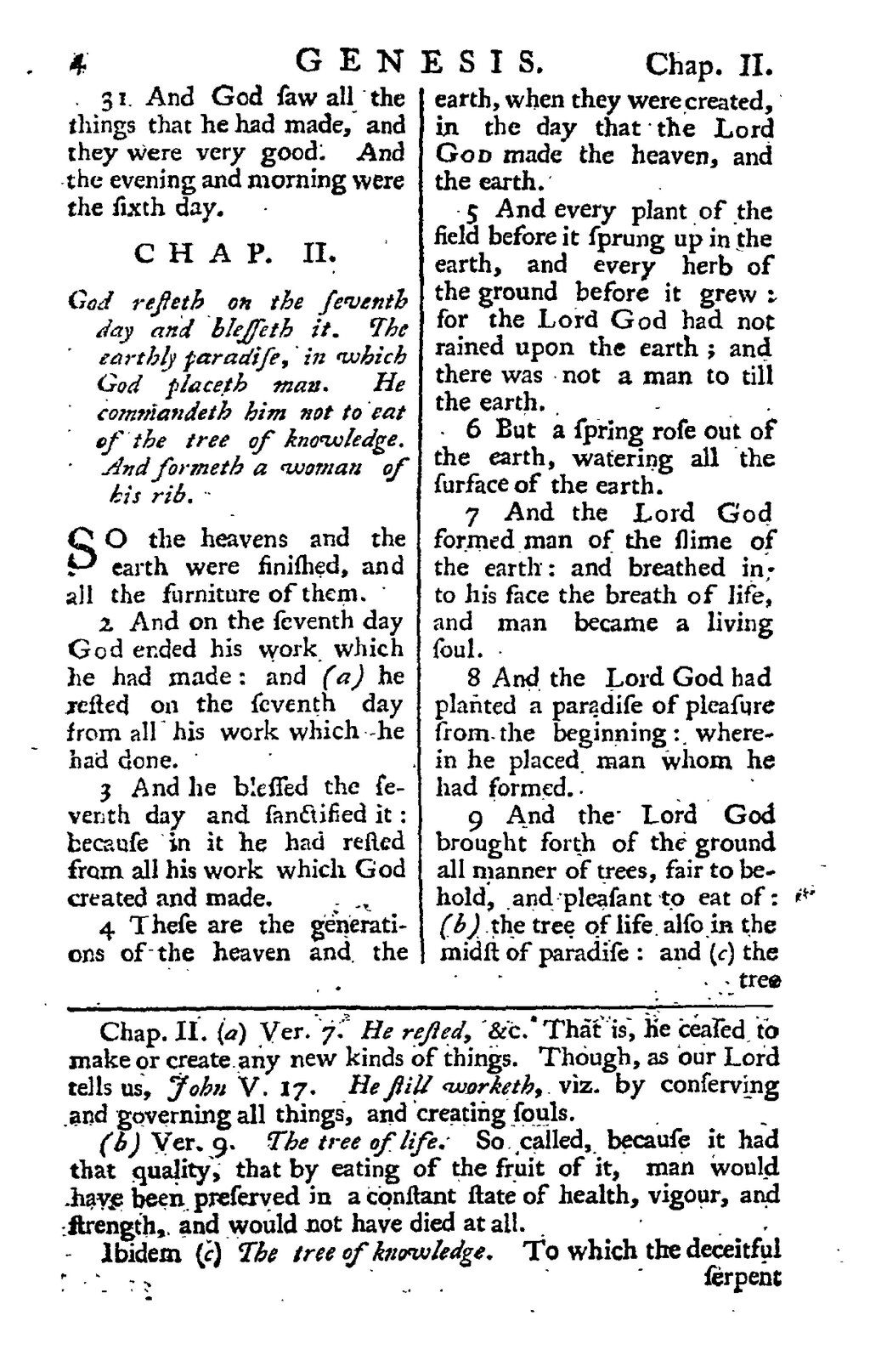31 And God saw all the things that he had made, and they were very good. And the evening and morning were the sixth day.
CHAP. II.
God resteth on the seventh day and blesseth it. The earthly paradise, in which God placeth man. He commandeth him not to eat of the tree of knowledge. And formeth a woman of his rib.
So the heavens and the earth were finished, and all the furniture of them.
2 And on the seventh day God ended his work which he had made: and [1] he rested on the seventh day from all his work which he had done.
3 And he blessed the seventh day and sanctified it: because in it he had rested from all his work which God created and made.
4 These are the generations of the heaven and the earth, when they were created, in the day that the Lord God made the heaven, and the earth.
5 And every plant of the field before it sprung up in the earth, and every herb of the ground before it grew: for the Lord God had not rained upon the earth; and there was not a man to till the earth.
6 But a spring rose out of the earth, watering all the surface of the earth.
7 And the Lord God formed man of the slime of the earth: and breathed into his face the breath of life, and man became a living soul.
8 And the Lord God had planted a paradise of pleasure from the beginning: wherein he placed man whom he had formed.
9 And the Lord God brought forth of the ground all manner of trees, fair to behold, and pleasant to eat of: [2] the tree of life also in the midst of paradise: and [3] the
- ↑ Ver. 7. He rested, &c. That is, he ceased to make or create any new kinds of things. Though, as our Lord tells us, John V. 17. He still worketh, viz. by conserving and governing all things, and creating souls.
- ↑ Ver. 9. The tree of life. So called, because it had that quality, that by eating of the fruit of it, man would have been preserved in a constant state of health, vigour, and strength, and would not have died at all.
- ↑ The tree of knowledge. To which the deceitful
